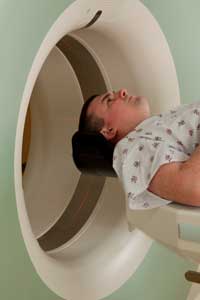 Published in the journal Blood, Ware and Helms report results from the Stroke With Transfusions Changing to Hydroxyurea (SWiTCH) randomized trial, suggesting that hydroxyurea is not as effective as current transfusion methods in preventing recurrent strokes among children with sickle cell anemia. The SWiTCH trial found that among the 67 patients treated with hydroxyurea and phlebotomy to manage liver iron content, 7 had strokes, while among the 66 patients treated with the current standard of transfusion and deferasirox iron chelation, none experienced strokes. Liver iron content was also not found to be reduced more by the phlebotomy compared to chelation. The SWiTCH trial was terminated early due to these negative results.
Published in the journal Blood, Ware and Helms report results from the Stroke With Transfusions Changing to Hydroxyurea (SWiTCH) randomized trial, suggesting that hydroxyurea is not as effective as current transfusion methods in preventing recurrent strokes among children with sickle cell anemia. The SWiTCH trial found that among the 67 patients treated with hydroxyurea and phlebotomy to manage liver iron content, 7 had strokes, while among the 66 patients treated with the current standard of transfusion and deferasirox iron chelation, none experienced strokes. Liver iron content was also not found to be reduced more by the phlebotomy compared to chelation. The SWiTCH trial was terminated early due to these negative results.
Reference:
Ware RE, Helms RW. Stroke With Transfusions Changing to Hydroxyurea (SWiTCH). Blood 2012;119: 3925-32.
